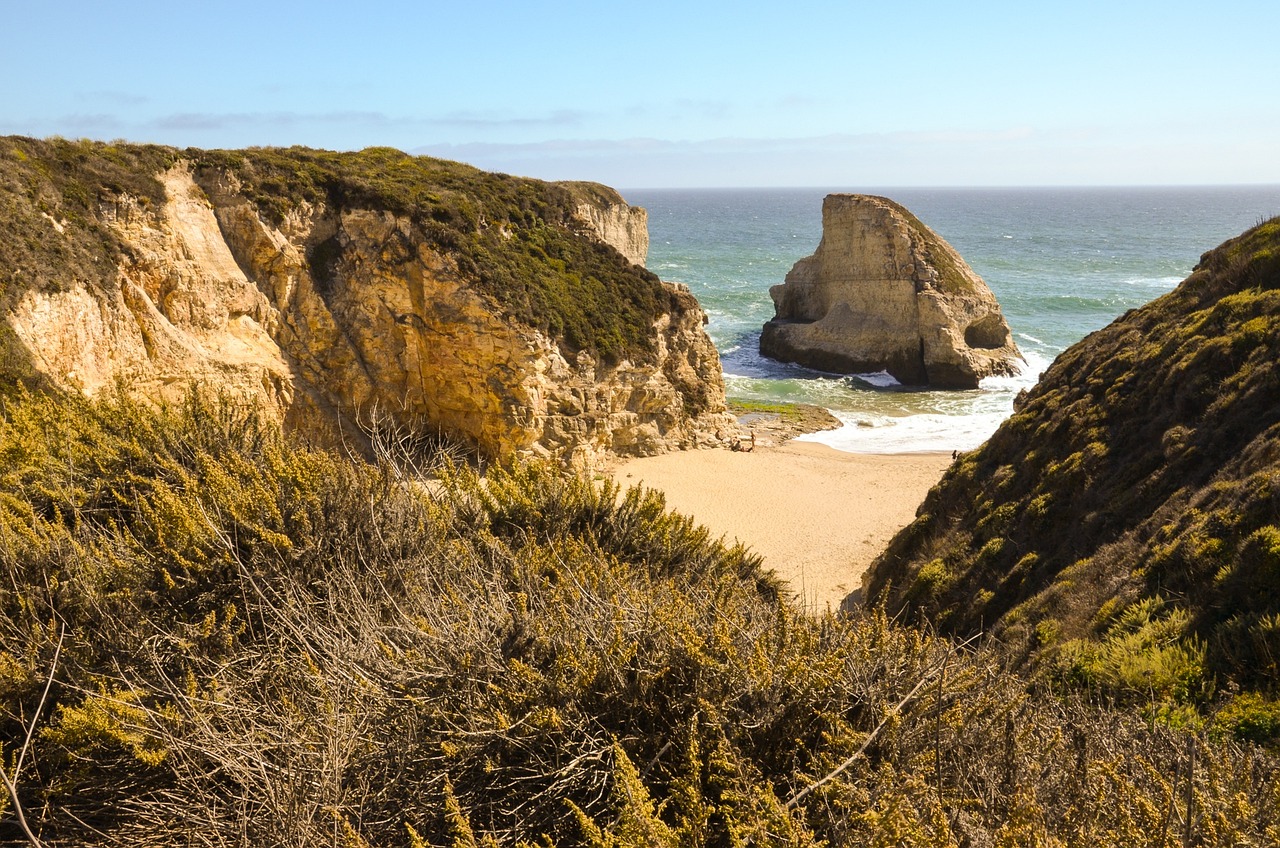The Discovery of the New World - A Complex Legacy
The discovery of the New World is a pivotal moment in history that carries a complex and multifaceted legacy. It marked the beginning of a new era, where worlds collided, cultures intertwined, and power dynamics shifted. The impact of this discovery reverberated across continents, shaping the course of history in ways that are still felt today.
When European explorers set foot on the shores of the Americas, they brought with them not just ships and weapons, but also diseases that decimated indigenous populations. The devastation caused by these diseases, combined with violent conquest and forced assimilation, led to the near extinction of many native tribes and the erasure of their rich cultures and traditions.
European exploration of the New World was not merely driven by curiosity or a thirst for adventure. It was fueled by a desire for wealth, power, and dominance. The establishment of colonies served as a means to exploit the abundant resources of the Americas, leading to the rise of empires and the consolidation of European influence on a global scale.
Despite the destructive impact of colonization, the discovery of the New World also facilitated a profound exchange of ideas, goods, and technologies between the Old and New Worlds. This cultural interchange laid the foundation for a globalized economy and interconnected world, where diverse societies interacted and evolved in ways previously unimaginable.
The legacy of colonization continues to cast a long shadow over the Americas, manifesting in social inequalities, political unrest, and economic disparities. Indigenous and marginalized communities still grapple with the enduring effects of historical trauma and systemic injustices rooted in centuries of exploitation and oppression.
Religion played a central role in the colonization of the New World, as European powers sought to spread Christianity and convert indigenous peoples to their faith. The fusion of religious doctrine with imperial ambitions provided a moral justification for conquest and subjugation, further entrenching the power dynamics of the era.
From an economic standpoint, the discovery of the New World reshaped the global landscape, ushering in an era of unprecedented wealth accumulation, trade expansion, and the emergence of capitalist economies. The influx of precious metals and commodities from the Americas fueled the growth of mercantilism and laid the foundation for modern economic systems.
However, this economic prosperity came at a steep environmental cost. European colonization brought about widespread deforestation, the introduction of invasive species, and irreversible changes to the natural ecosystems of the New World. The environmental impact of these actions continues to shape the biodiversity and sustainability of the region.
In modern times, there is a growing recognition of the need to confront the legacies of the past and strive for reconciliation with indigenous communities. Efforts to acknowledge historical injustices, promote cultural diversity, and uphold indigenous rights reflect a shift towards a more inclusive and equitable approach to addressing the complex legacy of the discovery of the New World.

Impact on Indigenous Peoples
Exploring the multifaceted impact of the discovery of the New World, from cultural exchange to colonization and exploitation, shaping the course of history and leaving a lasting legacy on both sides of the Atlantic.
The arrival of Europeans in the New World had a profound and devastating impact on the indigenous peoples who had inhabited the land for centuries. The encounter with European explorers brought about a wave of diseases, such as smallpox and measles, to which the native populations had no immunity. This resulted in decimation and depopulation, leading to long-lasting trauma and struggles for indigenous communities.
Furthermore, the influx of European settlers led to the displacement of indigenous tribes from their ancestral lands, often through violent means. The imposition of European customs, languages, and religions also contributed to the erasure of traditional indigenous cultures, causing a loss of identity and heritage that continues to be felt today.
The impact of European colonization on indigenous peoples was not only physical but also psychological and spiritual, creating a legacy of trauma and marginalization that persists in many indigenous communities across the Americas.

European Exploration and Expansion
European Exploration and Expansion during the Age of Discovery marked a pivotal moment in history, driven by a thirst for new trade routes, resources, and territories. The European powers of the time, including Spain, Portugal, England, France, and the Netherlands, embarked on ambitious voyages across the Atlantic and beyond, seeking to expand their influence and wealth.
These explorations were fueled by a combination of economic motives, such as the desire for spices, precious metals, and luxury goods, as well as the quest for glory and the spread of Christianity. The establishment of colonies in the New World allowed European nations to exploit the abundant resources and establish trade networks that would shape the global economy for centuries to come.
As European powers established footholds in the Americas, they encountered diverse indigenous cultures with their own social structures, traditions, and belief systems. The interactions between Europeans and indigenous peoples were complex, ranging from cooperation and cultural exchange to conflict and exploitation.
The European expansion into the New World not only transformed the political and economic landscape of the Americas but also had far-reaching consequences for the indigenous populations. The introduction of new diseases, forced labor practices, and land dispossession led to devastating impacts on native communities, resulting in population decline and cultural upheaval.
Moreover, the European exploration and expansion laid the foundation for the transatlantic slave trade, which further entrenched systems of exploitation and inequality in the New World. The legacy of this dark chapter in history continues to shape social dynamics and racial relations in the Americas today.
Despite the complexities and controversies surrounding European exploration and colonization, it undeniably played a significant role in shaping the modern world. The exchange of ideas, technologies, and goods between the Old and New Worlds paved the way for a more interconnected global society, laying the groundwork for the emergence of the modern world order.

Cultural Exchange and Globalization
When discussing the profound impact of the discovery of the New World, one cannot overlook the significant role that cultural exchange and globalization played in shaping the course of history. The interaction between the Old and New Worlds sparked a transformative exchange of goods, ideas, and technologies that transcended geographical boundaries and reshaped societies on both sides of the Atlantic.
Through the Columbian Exchange, a term coined by historian Alfred W. Crosby, a vast array of products and resources traversed the oceans, leading to a fusion of cultures and the emergence of a globalized economy. European explorers brought back crops such as potatoes and tomatoes from the Americas, while introducing wheat and livestock to the New World, forever altering agricultural practices and diets.
This intercontinental exchange not only revolutionized the culinary landscape but also facilitated the dissemination of knowledge and technologies. The transfer of agricultural techniques, navigation skills, and medical practices between continents accelerated progress and innovation, laying the foundation for the interconnected world we inhabit today.
Furthermore, the cultural exchange between Europe and the Americas transcended material goods, encompassing art, language, and belief systems. The encounter between different civilizations spurred a rich tapestry of artistic expression, linguistic evolution, and religious syncretism, giving rise to hybrid identities and diverse cultural expressions that continue to resonate in contemporary society.
In essence, the cultural exchange and globalization triggered by the discovery of the New World symbolize the interconnectedness of human civilization and the enduring legacy of cross-cultural interactions. It serves as a testament to the transformative power of exchange and collaboration, transcending borders and fostering a shared heritage that transcends time and space.

Legacy of Colonization
Exploring the multifaceted impact of the discovery of the New World, from cultural exchange to colonization and exploitation, shaping the course of history and leaving a lasting legacy on both sides of the Atlantic.
Colonization of the Americas by European powers has left a profound and enduring legacy that continues to shape societies in the present day. The impact of colonization on the social, political, and economic structures of the Americas cannot be overstated. The imposition of European systems of governance, legal frameworks, and economic structures has had far-reaching consequences, leading to persistent inequalities and injustices faced by indigenous and marginalized communities.
Furthermore, the legacy of colonization is evident in the cultural and linguistic diversity of the Americas, reflecting the complex interactions between indigenous traditions and European influences. The blending of cultures and the syncretism that emerged from these interactions have created unique identities that continue to evolve and shape the cultural landscape of the region.
One of the most enduring legacies of colonization is the deep-rooted trauma and intergenerational struggles experienced by indigenous communities. The loss of land, resources, and autonomy, coupled with centuries of systemic discrimination and marginalization, has had a profound impact on the well-being and resilience of indigenous peoples.
Moreover, the legacy of colonization extends beyond the borders of the Americas, influencing global power dynamics, economic systems, and cultural exchanges on a global scale. The exploitation of resources, labor, and knowledge from the New World has contributed to the development of capitalism, mercantilism, and the interconnected world we live in today.
In order to address the enduring legacy of colonization, it is essential to acknowledge the historical injustices, promote reconciliation efforts, and center the voices and experiences of indigenous peoples in shaping a more inclusive and equitable future. By confronting the legacies of the past with honesty and empathy, we can work towards building a more just and sustainable world for all.

The Role of Religion
The role of religion in the discovery of the New World was profound and far-reaching. As European explorers set foot on uncharted lands, they brought with them not only their ships and weapons but also their faith. Christianity, in particular, played a central role in the colonization of the Americas.
Religion served as both a motivator and a justification for the conquest of the New World. European powers saw the spread of Christianity as a divine mission, a way to save the souls of indigenous peoples deemed "uncivilized" or "heathen." This belief in the superiority of their religion fueled the zeal of explorers and colonizers, driving them to convert and subjugate native populations in the name of God.
Moreover, the presence of religious institutions, such as missions and churches, became a cornerstone of European colonial efforts. These establishments not only provided spiritual guidance but also served as centers of power and control, exerting influence over the daily lives of indigenous communities.
However, the imposition of Christianity was not without resistance. Many indigenous groups fiercely resisted conversion, holding onto their own spiritual beliefs and practices. This clash of faiths often led to violent conflicts and deepened the divide between colonizers and the colonized.
Furthermore, the intertwining of religion and colonization had lasting consequences on the social and cultural fabric of the Americas. The legacy of forced conversions, religious syncretism, and the erasure of indigenous belief systems continues to shape the identity and struggles of native communities to this day.

Economic Consequences
Exploring the multifaceted impact of the discovery of the New World, from cultural exchange to colonization and exploitation, shaping the course of history and leaving a lasting legacy on both sides of the Atlantic.
Discussing the devastating consequences of European arrival on the native populations, including disease, displacement, and cultural erasure, leading to long-lasting trauma and struggles for indigenous communities.
Examining the motivations behind European exploration, such as the search for new trade routes and resources, leading to the establishment of colonies and the spread of European influence.
Exploring the exchange of goods, ideas, and technologies between the Old and New Worlds, resulting in a blending of cultures and the emergence of a globalized economy and interconnected world.
Analyzing the lasting impact of colonization on the social, political, and economic structures of the Americas, as well as the enduring inequalities and injustices faced by indigenous and marginalized communities.
Investigating the influence of religion, particularly Christianity, in the colonization of the New World, including the spread of faith, the conversion of indigenous peoples, and the justification of conquest through religious doctrine.
Discussing the economic implications of the discovery of the New World, such as the influx of wealth from the Americas, the rise of global trade networks, and the development of capitalism and mercantilism.

Environmental Impact
Exploring the multifaceted impact of the discovery of the New World, from cultural exchange to colonization and exploitation, shaping the course of history and leaving a lasting legacy on both sides of the Atlantic.
When we delve into the environmental impact of European colonization in the New World, a profound story unfolds. The arrival of European explorers brought with it not only new cultures and technologies but also significant changes to the natural landscape. The quest for resources and expansion led to widespread deforestation as forests were cleared to make way for settlements and agriculture. This alteration of the land had cascading effects on the ecosystems, disrupting the delicate balance of flora and fauna that had existed for centuries.
Moreover, the introduction of invasive species by European colonizers had devastating consequences on the native biodiversity. These non-native species often outcompeted local flora and fauna, leading to the decline of indigenous species and further destabilizing the ecosystem. The once harmonious relationship between the environment and its inhabitants was disrupted, leaving a lasting imprint on the New World's natural heritage.
Additionally, the extraction of resources such as minerals and timber had long-term implications for the environment. The exploitation of natural resources without sustainable practices led to soil degradation, water pollution, and habitat destruction. The New World's ecosystems were fundamentally altered, with some regions experiencing irreversible damage that continues to impact the environment to this day.
As we reflect on the environmental legacy of European colonization, it becomes evident that the New World's landscapes bear the scars of past exploitation and neglect. However, there is also hope in recognizing the importance of conservation efforts and sustainable practices to restore and protect the natural beauty and biodiversity of these lands for future generations.
1. What were the main environmental consequences of European colonization in the New World?
2. How did the introduction of invasive species impact the biodiversity of the New World?
3. What role did resource extraction play in shaping the environmental legacy of colonization?
4. What efforts are being made to address and mitigate the environmental impact of European colonization in the modern era?

Modern Perspectives and Reconciliation Efforts
Exploring the multifaceted impact of the discovery of the New World, from cultural exchange to colonization and exploitation, shaping the course of history and leaving a lasting legacy on both sides of the Atlantic.
As we look back on the history of the discovery of the New World, modern perspectives offer a critical lens through which to view the complex legacy left by this pivotal event. In recent years, there has been a growing recognition of the need for reconciliation efforts to address the injustices and inequalities that continue to affect indigenous and marginalized communities.
Contemporary views emphasize the importance of acknowledging the traumatic impact of colonization on indigenous peoples and the ongoing struggles they face. Calls for reconciliation seek to promote healing and understanding between different cultural groups, fostering a more inclusive and equitable society.
Efforts to address the legacies of exploitation and discrimination include initiatives to recognize and uphold indigenous rights, support cultural revitalization, and promote greater representation and participation of indigenous voices in decision-making processes.
Through education, advocacy, and dialogue, modern perspectives aim to create a more just and respectful relationship between all peoples, honoring the diverse histories and contributions of those impacted by the discovery of the New World.
Frequently Asked Questions
- What were the main consequences of the European arrival on indigenous peoples?
The European arrival had devastating consequences on indigenous populations, including the spread of diseases, displacement from their lands, and the erasure of their cultures. This led to long-lasting trauma and struggles for indigenous communities.
- What motivated European exploration of the New World?
European exploration was primarily driven by the search for new trade routes and valuable resources. This pursuit ultimately led to the establishment of colonies and the expansion of European influence across the globe.
- How did the discovery of the New World impact global trade and cultural exchange?
The discovery of the New World facilitated the exchange of goods, ideas, and technologies between different regions, resulting in a blending of cultures and the emergence of a globalized economy. This interconnectedness shaped the modern world as we know it.
- What is the lasting legacy of colonization on the Americas?
Colonization left a profound impact on the social, political, and economic structures of the Americas. It also resulted in enduring inequalities and injustices faced by indigenous and marginalized communities that continue to be addressed today.
- How did religion play a role in the colonization of the New World?
Religion, particularly Christianity, played a significant role in the colonization of the New World. It was used to justify conquest, convert indigenous populations, and spread religious doctrine across the newly discovered lands.
- What were some of the economic consequences of the discovery of the New World?
The discovery of the New World brought about significant economic changes, including the influx of wealth from the Americas, the establishment of global trade networks, and the development of economic systems like capitalism and mercantilism.
- How did European colonization impact the environment of the New World?
European colonization had a profound environmental impact on the New World, leading to deforestation, the introduction of invasive species, and changes to ecosystems. These changes shaped the natural landscape of the Americas.
- What are some modern perspectives on the discovery of the New World?
Contemporary views on the discovery of the New World focus on reconciliation, recognition of indigenous rights, and efforts to address the legacies of colonization and exploitation in a more inclusive and equitable manner. There is a growing emphasis on learning from the past to create a better future for all.



















